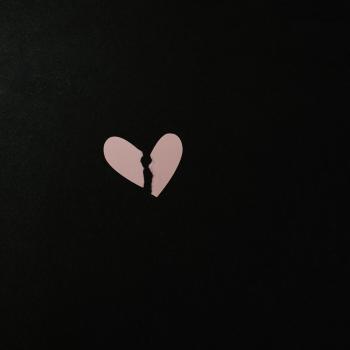Defining a heretic is a tricky business. A heretic is not just someone you disagree with. It is the representative of evil itself, someone who is posturing against good, threatening its very way of life.
As a student of history, it is sometimes frightening and frequently appalling the ways in which we define a heretic. Who is burned at the stake? Who do we go to war against? Again, a heretic is not just someone you disagree with and shake hands after (like the Yankees and the Red Sox). Defining a heretic shapes the way in which we view good and evil. And it is also the way we justify our response. Our history is riddled with examples in which two sides are pointing across a divide, each accusing the other of heresy.
Old Heretics
One of the most interesting historical periods, in my humble opinion, is the Reformation-leading-into-The-Enlightenment. It is a time when change is happening wholesale. People are rethinking everything. Our whole way of life, as Western thinkers and believers, turns on the axis of this time period.

One of the sad realities of this era is the harsh vilification of the different schools of thought. Christians literally go to war with one another. In the post-Reformation era, Catholic or Protestant was the kind of thing you didn’t bring up at the dinner table (actually, you were very unlikely to be dining with anyone from ”the other side”). Kings and kingdoms, persecutions and oppressions, violence of all kinds were held in the name of exerting the dominance of one of these factions over the other.
It strikes me when I read about this that the way Catholics talk about Protestants (and vice versa) is not just about differing factions, nor about a competitive viewpoint. They are enemies. The other side is heretical. So, the other side is an active threat to goodness. Therefore, just about any action to thwart them is justified.
Today’s Heretics
Think of a heretic in this way. What is the worst thing you can call a person?
A lot of people I talk to treat the opposing political party as heretics. For my conservative friends in Texas, one of the worst things they can say about a person is “they are liberal” or “they are influenced by the liberal agenda”.
What is sometimes scary about this, among other things, is how easily this can be used. People who think this way will often spit the venom of “liberal” onto a person who is a long way from what most of the country would call liberal. It might just be a single issue or statement. And the venom flies.

Which, sadly, is a lot like the Protestant/Catholic wars of the post-Reformation era. You could be accused of either side by a neighbor at the drop of a hat. And depending on who is in charge at the time, the mere accusation could cost you your life.
I see the very same sort of thing from many liberals in New York. Just about the worst thing they can think of is “a conservative”.
So here we are, politically drifting further and further apart. No longer are we able to work together. We sure say it though. When one party is in charge, they talk about “working together”, which reeks with hypocrisy since when the other side was in control they undermined it at every turn. Again, both sides are guilty of this.
Enemies
But are Republicans and Democrats really natural enemies of one another? Were the Catholics and Protestants?
One of the side-effects to the battle royal between Protestant and Catholic is the God-is-dead movement of The Enlightenment. The new school of reason and logic over belief had simply to point to the insanity of the religious factions to suggest there had to be a better way.

I wonder if the same is happening today.
Is the progress of evil, true evil, not the march of one political party or the other, but instead the loss of our humanity, of truth, and of perspective? The things we set aside to pursue a war on heretics. People are wrong about things, they are ignorant or imbalanced, but are they heretics? And is calling them a heretic anything less than a validation of our superiority? After all, how often does shaming someone as a heretic cause them to change their ways? And, perhaps the greatest question of all: how can each of us be so sure of the personifications of pure evil and our innocence of it?
We ought to be able to talk about things without the differences becoming a mark of heretical blasphemy. If we don’t allow ourselves to see others better, we won’t allow them to see us better. And both “them” and “us” need to do a better job of seeing one another as friends rather than adversaries.












